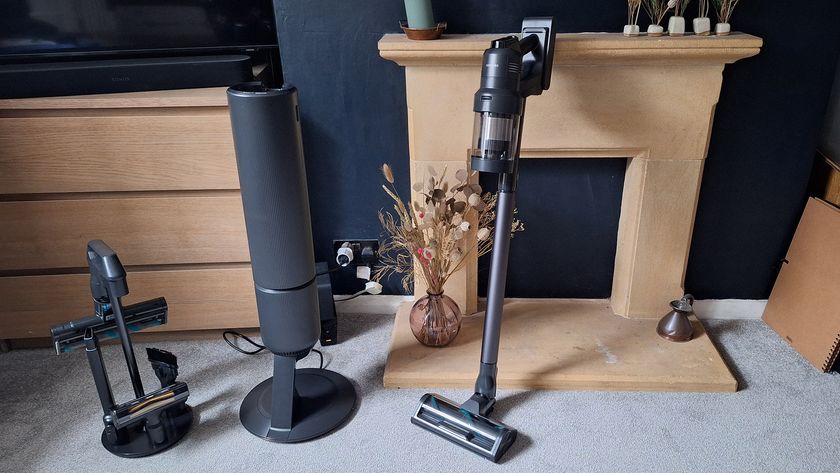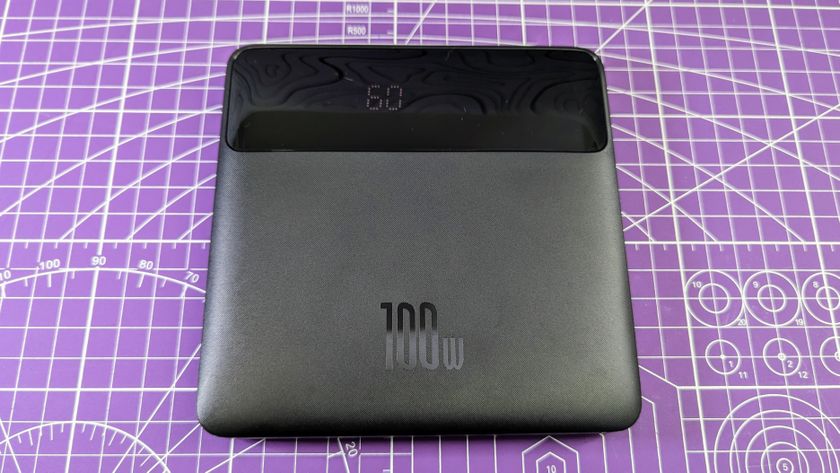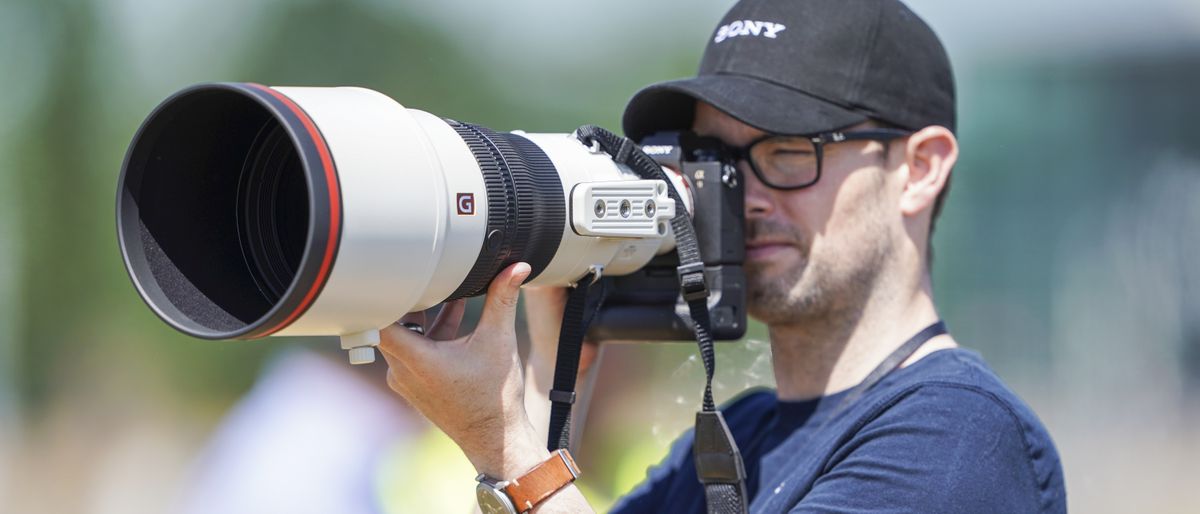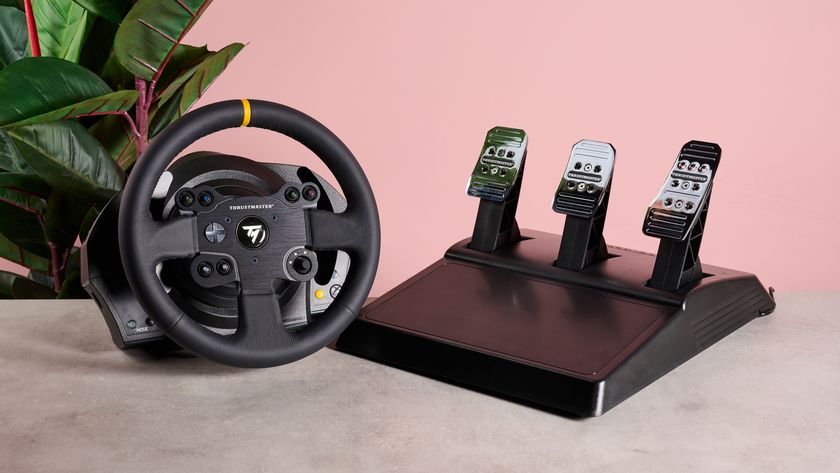Early Verdict
Lightweight, responsive and with some great handling attributes, the FE 400mm f/2.8 GM OSS is the lens you've been waiting for if you're a sports or nature photographer shooting on Sony Alpha cameras.
Pros
- +
Lightweight for a 400mm f/2.8
- +
Very fast focusing speeds
- +
Backgrounds nicely defocused
- +
Customizable ring
Cons
- -
Not cheap
- -
You'll still need to use a monopod
Why you can trust TechRadar
Sony's Alpha A9 is a brilliant camera for shooting action, thanks to its incredibly quick AF system and 20fps burst shooting. However, it's been hampered a little by the limited selection of Sony telephoto lenses, with the FE 100-400mm f/4.5-5.6 GM OSS the longest dedicated optic for Sony's range of full-frame mirrorless cameras.
Now Sony has launched the much-anticipated FE 400mm f/2.8 GM OSS telephoto prime, which offers a focal length that's all but essential for sports photographers, and for many nature photographers too. We got our hands on the new optic to try it out for ourselves.
Features
- Newly developed XD Linear motor
- 11-blade aperture diaphragm
- Built-in optical image stabilization
While the lack of a 400mm f/2.8 lens has left a big hole in Sony's lineup, the specification of the new FE 400mm f/2.8 GM OSS suggests it will have been worth the wait.
Sony has developed new high-speed XD (extreme dynamic) Linear Motors that drive the lens's focusing. Compared to the older design, these deliver a higher thrust, which Sony reckons will deliver a 5x improvement in moving-subject tracking performance.
Focal length: 400mm
Mount: Sony E
Filter size: 40.5mm (slot-in)
Max aperture: f/2.8
Closest focus distance: 2.7m
Dimensions: 158 x 359mm
Weight: 2,895g
As you'd expect for a high-end, G Master lens, Sony hasn't skimped on the optical design of the lens either. This includes three fluorite elements that are designed to minimize chromatic aberration, while the aperture diaphragm of the lens is made up of 11 blades to help deliver smoothly defocused areas.
While Sony's latest full-frame mirrorless cameras feature sophisticated built-in image stabilization systems, the new lens also features built-in optical stabilization, with three different Mode settings available depending on the platform you're shooting from, including a mode that's designed to make shooting panning shots easier.
The FE 400mm f/2.8 GM OSS also includes a drop-in filter slot that accepts 40.5mm ND and other filter types, as well as the optional VF-DCPL1 drop-in Circular Polarizing Filter.
Build quality and handling
- Weighs only 2,895g
- Balance is very good
- Compatibility with teleconverters
Make no mistake, this is a big lump of glass, although weighing in at 2,895g it's almost 1kg lighter than the Canon EF 400mm f/2.8L IS USM II (3,850g) or Nikon's AF-S 400mm f/2.8E FL ED VR (3,805g). Things look even better when you factor in the body weight of the camera, with a total weight of 3,923g for the FE 400mm f/2.8 GM OSS, Alpha A9 and grip (compared to 5,380g for a Canon setup with an EOS-1D X Mark II, and 5,205g for a Nikon setup with a D5).
This really is noticeable when you pick up the lens with an Alpha A9 attached along with a grip. It's certainly heavy, but you can shoot hand-held with this combo for a decent period of time – something we've found pretty much impossible to do in the past with both Canon and Nikon setups. Having said that, if you're planning to shoot sports or wildlife for an hour or two you'll definitely be reaching for a monopod at some point.
Sony has also ensured that camera-lens combos are nicely balanced, with the optical design of the lens allowing Sony to reduce the number of elements at the front of the barrel, meaning the lens isn't front-heavy.



As the lens is likely to find itself used in fairly extreme conditions, from sporting events in the rain to safaris on a dusty savannah, the magnesium alloy-constructed lens is dust- and moisture-resistant, while the front element is coated with fluorine to resist dirt and fingerprints. A nice little touch is the security slot on the tripod collar that enables you to attach security wire to it.
There's a suite of body-mounted controls, including a Full-Time DMF switch to immediately engage manual focus at any point, and customizable focus-hold buttons in four different locations on the barrel. Although we didn't get a chance to use this feature in the time we had with the lens, we can imagine it will be really useful when set up for EyeAF.
Performance
- Focusing is extremely quick
- Lovely bokeh
- Excellent sharpness
Focusing performance was incredibly impressive when paired with the Alpha A9, with the combination easily able to keep up with the fast-moving cars we were shooting at Sony's press event, whether maintaining focus on a car moving towards us at speed or tracking it as it come into the frame and through a bend.
We used the lens wide open at f/2.8 pretty much exclusively, and it's capable of delivering beautifully smooth defocused backgrounds, while the levels of sharpness and contrast rendered were excellent.

Click here to see the full-size image

Click here to see the full size image

Click here to see the full size image

Click here to see the full size image
Final thoughts
The FE 400mm f/2.8 GM OSS is certainly expensive at £10,500 / $12,000 (Australian pricing is till to be confirmed), but that's no pricier than rival optics from Canon and Nikon. It's also packed with the latest tech – you real feel that Sony hasn't rushed this lens, and has worked hard to get everything right first time.
Lightweight, responsive, and with some great handling attributes, this is the lens you've been waiting for if you're a sports or nature photographer shooting on Sony Alpha cameras – and there's no doubt that the FE 400mm f/2.8 GM OSS will turn the heads of some Canon and Nikon users too.
Phil Hall is an experienced writer and editor having worked on some of the largest photography magazines in the UK, and now edit the photography channel of TechRadar, the UK's biggest tech website and one of the largest in the world. He has also worked on numerous commercial projects, including working with manufacturers like Nikon and Fujifilm on bespoke printed and online camera guides, as well as writing technique blogs and copy for the John Lewis Technology guide.

I usually hate cleaning, but the Roborock F25 Ace wet-dry vacuum made it kind of satisfying

Testing Samsung's new AI-powered vacuum taught me that I don't really need my vac to be know the difference between every single surface

I’ve used a lot of power banks, but the Baseus Blade Pro is the only one slim enough for my laptop sleeve







